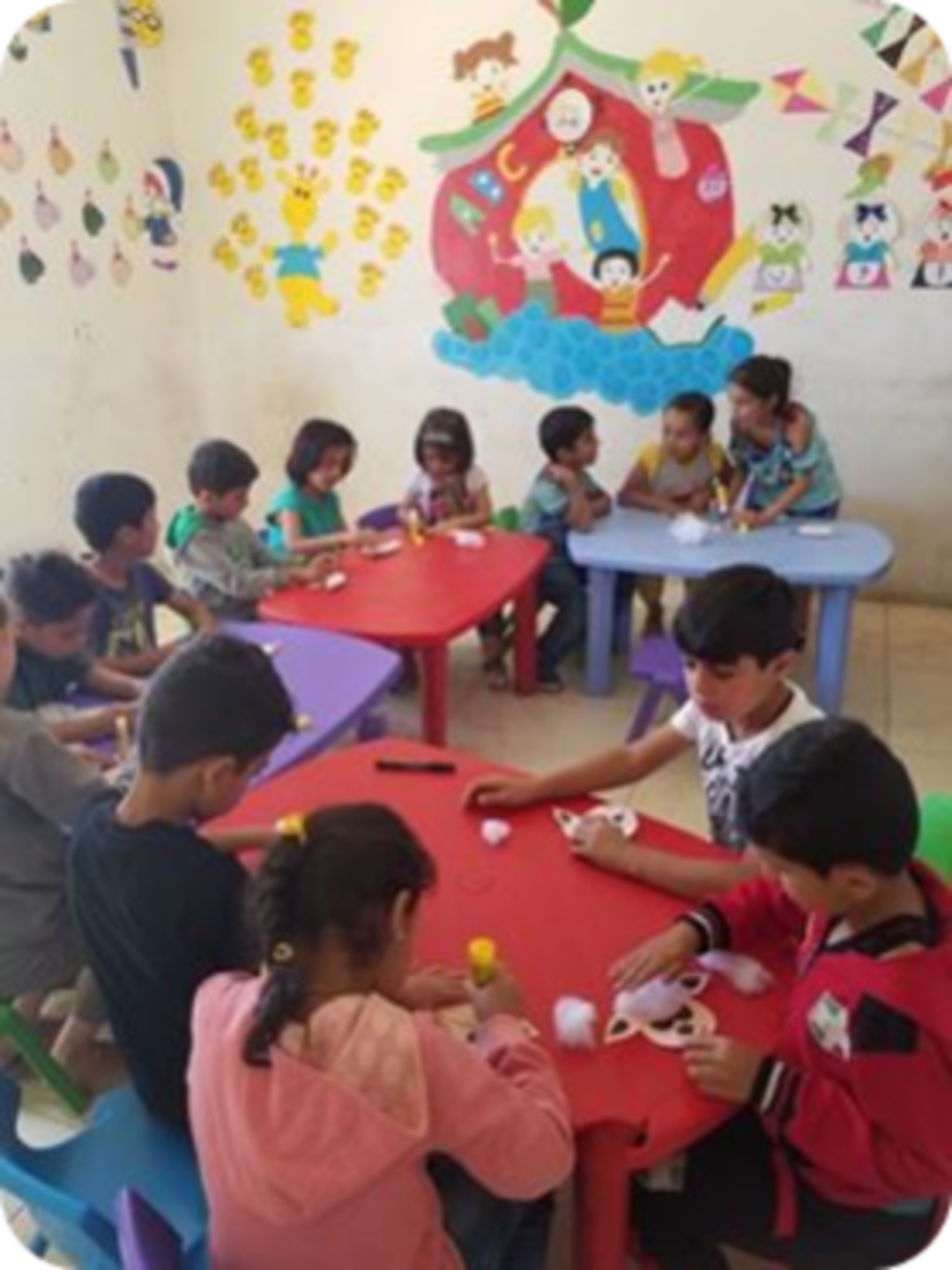An education and empowerment center
The project aimed to provide non-formal education to Syrian refugee children in Arsal. It would also deliver academic knowledge, vocational trainings and psychosocial support to refugee youths and women. More specifically it would provide 208 out-of-school children,with non-formal education, 192 adolescent youths with an academic and skills program and 192 women with an empowerment program.
During the COVID-19 pandemic, SB Overseas worked directly in the camps, sanitizing the tents, distributing hygiene kits and providing awareness sessions to the families to increase knowledge about the virus. 208 out-of-school children received non-formal education and 176 of these students are now enrolled in public schools. 34 groups of women and 30 groups of youths followed courses in literacy and vocational training to empower them and support their social & economic situation. Positive changes appeared and were noticed in beneficiaries who had attended the program. Women and youths are now self-dependent, and earn money to support their families. Some women are now also saving money. The psychosocial support program helped the beneficiaries in their personal lives and gave them tolls and skills to combat stressful issues and find appropriate solutions.
SB Overseas is non-profit organisation based in Belgium dedicated to providing humanitarian aid to refugees and victims of conflict. In Lebanon, its mission is to provide educaiton, empowerment, psychosocial support and emergency assistance to Syrain refugees
News
Type
EducationDuration
January 2020 - December 2020Location
Arsal / LebanonWith whom
SB Overseas
Website




Lebanon
Population
6.8 million (2018)
Per Capita Income
USD 7,920/year (2018)
Poverty rate *
27% (2010)
Literacy rate
94% (2016)
Human Development Index
82nd out of 189 countries (2018)
Lebanon has the highest per capita refugee presence, with 1.5 million Syrians, more than a quarter of the Lebanese population. The Syrian crisis is negatively impacting the economic and social fabric in Lebanon, straining its public finances, service delivery and environment. Although it is considered as an upper-middle-income country, poverty and income inequality remain high, with wide disparities among regions. A sharp increase in inflation in 2018, averaging 6.1 for the year, has compounded the regressive effect on lower-income families and older people in society. The agricultural sector is weak due to low productivity and profitability, with over 80% of the country’s food needs imported. 34% of Syrian refugees are severely to moderately food insure, many taking children out of school and sending them to work. 24% of Syrian girls aged 15 to 17 are married off- a fourfold increase over pre-Syrian war rates.
Sources: World Food Program, UNICEF, World Bank, 2016 Human Development Report, Human Development Indices and Indicators (2018 Statistical Update)
*The percentage of the population living below the national poverty line.